
Latest articles from Vladimir Socor
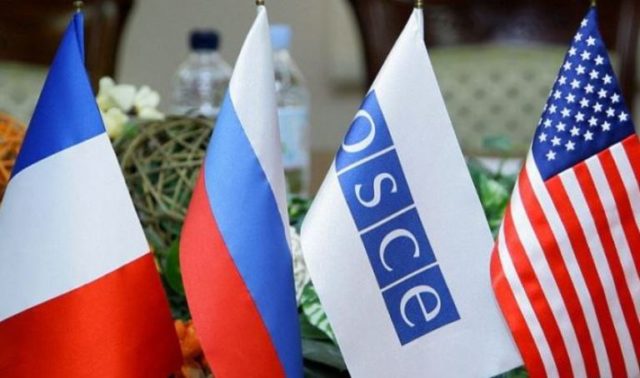
Can the Minsk Group on the Armenia-Azerbaijan Conflict Reinvent Itself? (Part One)
The 44-day Second Karabakh War between Armenia and Azerbaijan, its Russian-mediated outcome, the launch of Russia’s own peacekeeping operation, and Turkey’s rise as a regional power have all exposed the Minsk Group’s irrelevance. Mandated by the Organization for Security and Cooperation in Europe (OSCE) back... MORE
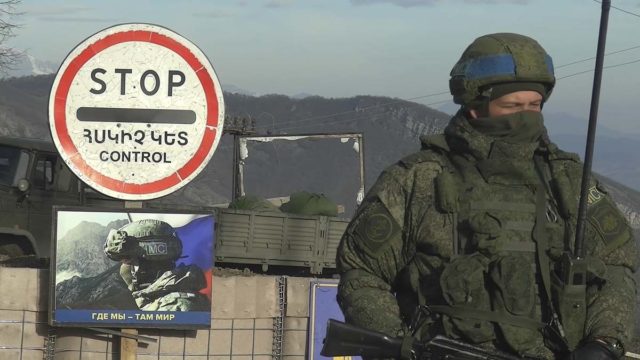
Russian ‘Peacekeeping’ in Karabakh: Old Model, New Features, Mission Creep (Part Three)
*To read Part One, please click here. *To read Part Two, please click here. The Armenian-Azerbaijani conflict over Karabakh was the only Soviet-legacy conflict that did not feature Russian “peacekeeping” troops during the 26-year period between the first armistice, in 1994, and the latest armistice,... MORE
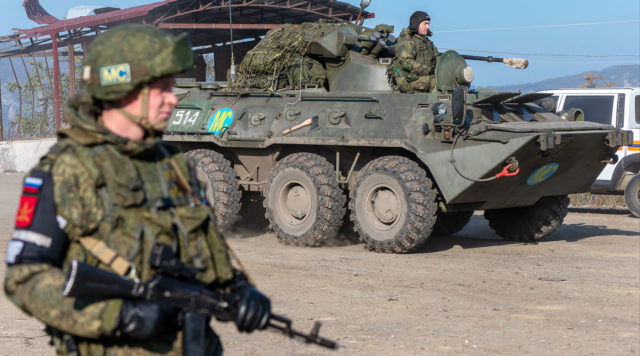
Russian ‘Peacekeeping’ in Karabakh: Old Model, New Features, Mission Creep (Part Two)
*To read Part One, please click here. Under the November 9–10, 2020 armistice declaration, Russia’s “peacekeeping” mission in Upper (Nagorno) Karabakh is limited to 1,960 motor-rifle troops with light weapons and armored personnel carriers (see EDM, November 12, 13, 2020). According to Russian President Vladimir Putin,... MORE
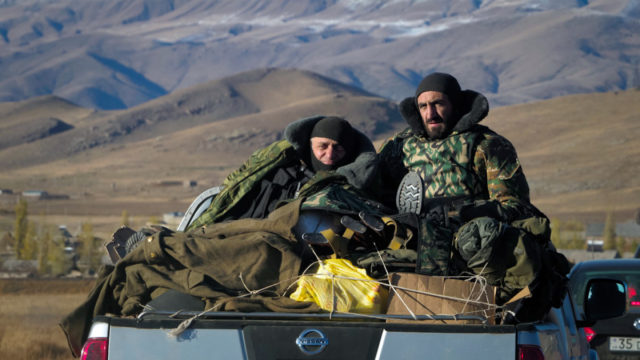
Russian ‘Peacekeeping’ in Karabakh: Old Model, New Features, Mission Creep (Part One)
Russia’s “peacekeeping” operation in Upper (Nagorno) Karabakh, which ended the 44-day war last November, is laying the foundation of a Russian protectorate in this Armenian-inhabited territory of Azerbaijan (see EDM, December 8, 10, 2020). This undertaking shows some familiar features of Russia’s earlier “peacekeeping” model... MORE
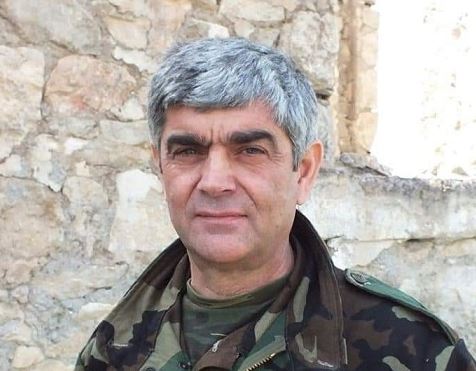
Vitaly Balasanian, Karabakh’s Strongman-in-Waiting
The unrecognized Karabakh republic (“Artsakh” to Armenians), a militarized proto-state, seems headed for leadership change. Following its defeat (shared with Armenia) by Azerbaijan in the recent 44-day war, Karabakh’s so-called president, Araiyk Harutiunian, announced his intention to resign and quit politics as soon as a... MORE
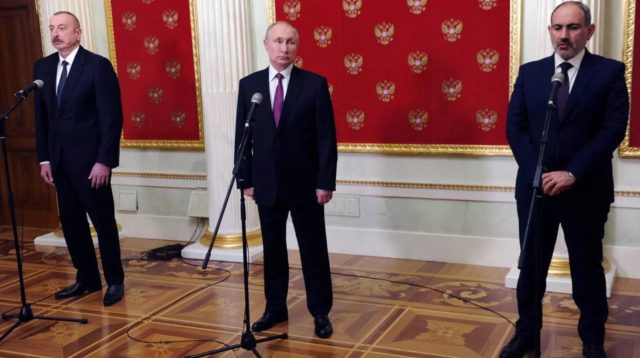
Russia, Azerbaijan and Armenia to Start Regional Interconnectivity Projects
Russian President Vladimir Putin, Azerbaijani President Ilham Aliyev, and Armenian Prime Minister Nikol Pashinian conferred on January 11, in the Kremlin, to assess the implementation of the Putin-brokered armistice that ended the Second Karabakh War on November 10, 2020 (see EDM, November 12, 13, 2020).... MORE
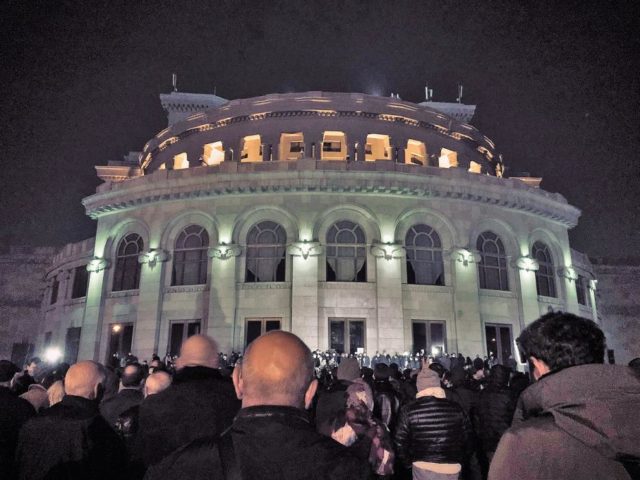
Armenia’s 44-Day War: A Self-Inflicted Trauma (Part Two)
*To read Part One, please click here. The Armenian government has yet to unveil the number of military casualties sustained during the Second Karabakh War (September 27–November 9, 2020). Almost two months after the ceasefire, the search for bodies is still ongoing across the theater;... MORE
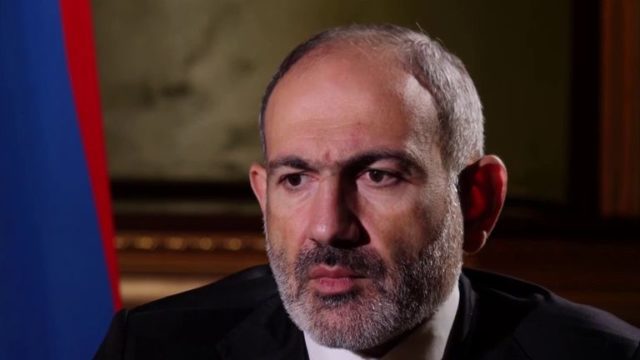
Armenia’s 44-Day War: A Self-Inflicted Trauma (Part One)
The Armenian government of Nikol Pashinian represents the first case of a “color revolution”–emanated government lightheartedly going to war (Armenia-Azerbaijan war, September 27–November 10, 2020). Irrationally, this government waged a war of choice to perpetuate Armenia’s territorial gains achieved in 1994 at Azerbaijan’s expense. The... MORE
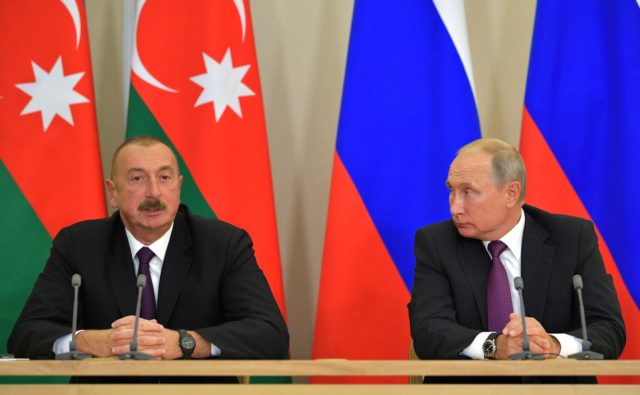
The South Caucasus: New Realities After the Armenia-Azerbaijan War (Part Three)
*To read Part One, please click here. *To read Part Two, please click here. Russian President Vladimir Putin has recently supplanted the Minsk Group’s triple co-chairmanship (the United States, France, Russia) as mediator between Armenia and Azerbaijan. It was Putin, not the Minsk co-chairmanship, who... MORE
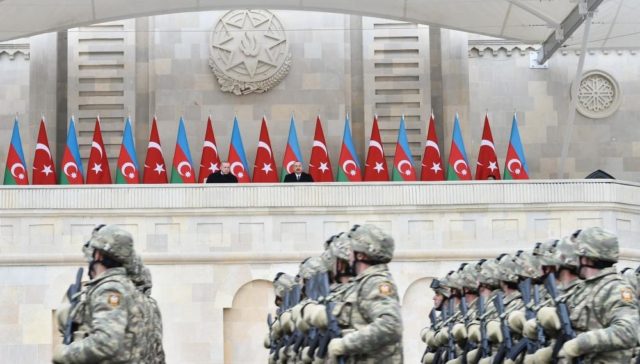
The South Caucasus: New Realities After the Armenia-Azerbaijan War (Part Two)
*To read Part One, please click here. Azerbaijan’s successful military action against Armenia’s occupying forces in Karabakh this autumn disproved Western diplomacy’s admonitions about post-Soviet “frozen conflicts” having “no military solutions” but “only political, negotiated solutions” with “no alternatives.” Armenia, however, had imposed its own... MORE